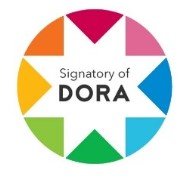Educational games.
Unlocking the potential of playful learning.
DOI:
https://doi.org/10.59654/kbc2pg21Keywords:
Educational play, cognitive benefits, social skills, intrinsic motivation, examples of educational games.Abstract
The educational approach based on learning through play has experienced significant growth in terms of recognition and acceptance in recent years. This article delves into the exploration of how play can play a fundamental role as a facilitator of learning, offering a detailed perspective on its benefits and essential considerations. From a historical standpoint, key elements of playful learning in Greek and Roman civilizations are examined, along with the adaptation of specific games to address the particular needs of students.
Downloads
References
Amabile, T. M. (1996). Creativity in context. Boulder, CO: West view Press.
Arguello, M. F. C. y Herazo, Ch. M. I. (2024). El juego como estrategia pedagógica para mejorar las habilidades de pensamiento crítico en niños y niñas de grado primero en una IE rural Juego y Pensamiento Crítico. Revista Internacional de Pedagogía e Innovación Educativa. 4(1), 133-150. DOI: 10.51660/ripie.v4i1.137
Aristóteles. (2000). Ética Nicómaco. (Trad. J. Pallí Bonet). Editorial Gredos.
Aristóteles. (1988). Política. (Trad. M. García Valdez). Editorial Gredos.
Betancourth, Z, S., Martínez, D. V., & Tabares, D. Y. A. (2020). Evaluación de Pensamiento Crítico en estudiantes de Trabajo Social de la región de Atacama-Chile. Entramado, 16(1), 152-164.
Burgos, S.; Yohannessen, K.; Álvarez, A.; Soc, A.; Rebolledo, A.; Educ, L.; & Valenzuela, M. T. (2017). Educación en salud a través del desarrollo de habilidades científicas en escolares chilenos. 59(3), 276-284. https://doi.org/10.21149/8177
Burguete, G. M. (2020). Análisis educativo. Civilization VI. Games to Learn History. https://www.gtlhistory.com/videojuegos-analizados/
Centro de Comunicación y Pedagogía (2013). Física y mecánica aeronáutica con ‘Kerbal Space Program’. Noticias de uso didáctico. Blog. https://www.noticiasusodidactico.com/blog/2012/02/fisica-y-mecanica-aeronautica-con-kerbal-space-program/
Díaz, S. I. (2012). El juego lingüístico. Una herramienta pedagógica en las clases de idiomas. Revista de lingüística y lenguas aplicadas, 7, 97-102. https://www.google.com/url?sa=t&rct=j&q=&esrc=s&source=web&cd=&cad=rja&uact=8&ved=2ahUKEwiY_cXl_IWFAxWihP0HHWWvAiMQFnoECB8QAQ&url=https%3A%2F%2Fpolipapers.upv.es%2Findex.php%2Frdlyla%2Farticle%2Fview%2F947%2F1204&usg=AOvVaw3OAS-XdNvxksYnRuEn9tKt&opi=89978449
Franco, S. E. (2022). El poder del juego en educación superior, creatividad en aprendizaje terciario. Educación XXXI, (60), 317-325. http://www.scielo.org.pe/pdf/educ/v31n60/2304-4322-educ-31-60-317.pdf
González, J. A., Sáenz-López, B. P. y Diaz, T. M. (2016). Vamos a jugar. El juego en educación primaria. Universidad de Huelva.
Gutiérrez, S. J. G., Arnau, D. y Gonzáles, C. J. A. (2015). Ensayos. Revista de la Facultad de Educación de Albacete, 30(1), 33‐44. http://www.revista.uclm.es/index.php/ensayos
Hamari, J., Shernoff, D. J., Rowe, E., Coller, B., Asbell-Clarke, J. y Edwards, T. (2016). Challenging games help students learn: An empirical study on engagement, flow and immersion in game-based learning. Computers in Human Behavior, 54, 170-179. https://www.sciencedirect.com/science/article/abs/pii/S074756321530056X
López, V. A. L. y Venustian, C. P. (s.f). Uso de la App Lumosity para el desarrollo de habilidades básicas del pensamiento empleada en el Módulo de Resolución de Problemas. https://www.google.com/url?sa=t&rct=j&q=&esrc=s&source=web&cd=&cad=rja&uact=8&ved=2ahUKEwiu-qmyg7-EAxV1bzABHYjKDdoQFnoECBUQAw&url=https%3A%2F%2Fwww.gob.mx%2Fcms%2Fuploads%2Fattachment%2Ffile%2F405753%2FRese_a_Alma_L_pez_Final.pdf&usg=AOvVaw1IN7ahE66kqziG6Yrl8oml&opi=89978449
Lumosity. (2024). Descubre de lo que es capaz tu mente. https://www.lumosity.com/
Mayer, R. E., & Wittrock, M. C. (2006). Problem solving. In P. A. Alexander & P. H. Winne (Eds.), Handbook of educational psychology (pp. 287–303). Lawrence Erlbaum Associates Publishers.
Paul, R. W. & Elder, L. 1996). Critical Thinking: The Nature of Critical and Creative Thought, 30(2), 34-35. https://www.proquest.com/docview/228409035?sourcetype=Scholarly%20Journals (Pensamiento Crítico: La Naturaleza del Pensamiento Crítico y Creativo).
Pérez, M. M., Méndez, A. L. y Zamora, M. G. E. (2019). Uso y aplicación del Minecraft como herramienta educativa. Trabajo de fin de grado de maestra en educación infantil. Universidad de la Laguna. https://riull.ull.es/xmlui/bitstream/handle/915/14931/Uso%20y%20aplicacion%20del%20Minecraft%20como%20herramienta%20educativa.%20%20.pdf?sequence=1&isAllowed=y
Plass, J. L. & Kaplan, U. (2016). Emotional Design in Digital Media for Learning. Elsevier. https://www.sciencedirect.com/science/article/abs/pii/B9780128018569000074
Puente, O. P. y Puente, O. C. (2015). Gamificación en el aula: el Scrabble® como herramienta de aprendizaje del español. XVII Encuentro práctico de ELE. https://pdfcoffee.com/gamificacion-en-el-aula-el-scrabble-como-herramienta-de-aprendizaje-del-espaol-pdf-free.html
Rodríguez, I.; González, R.; Morales, G.; Azpeleta, C.; Monreal, D.; Fernández, R.; Fernández-Santander, A.; Palau, L.; Rodríguez-Learte, A. I.; Romero-Lorca, A.; Santos, P.; Sánchez, A.; & Gal-Iglesias, B. (2017). El aprendizaje a través del juego como herramienta en el diseño de actividades de valor añadido en un currículo integrador de Ciencias Biomédicas Básicas. Revista de La Fundación Educación Médica, 20(1), 23. https://scielo.isciii.es/scielo.php?script=sci_abstract&pid=S2014-98322017000100023
Ryan, R. M. & Deci, E. L. (2000). Intrinsic and Extrinsic Motivations: Classic Definitions and New Directions. Contemporary Educational Psychology 25, 54–67. doi:10.1006/ceps
Stojanovié, B., Milovanović, R. & Ćirković-Miladinović, I. (2016). Encouraging the Development of Cognitive Operations in Early School Age Children by Applying the System of Didactic Games. The New Educational Review, 140-152. https://czasopisma.marszalek.com.pl/images/pliki/tner/201602/tner20160211.pdf
Downloads
Published
Issue
Section
License
Copyright (c) 2024 Revista Digital de Investigación y Postgrado

This work is licensed under a Creative Commons Attribution-NonCommercial-ShareAlike 4.0 International License.
Esta licencia permite a los reutilizadores distribuir, remezclar, adaptar y desarrollar el material en cualquier medio o formato únicamente con fines no comerciales, y solo siempre que se atribuya al creador. Si remezclas, adaptas o construyes sobre el material, debes licenciar el material modificado bajo términos idénticos. CC BY-NC-SA incluye los siguientes elementos:
![]() POR: se debe dar crédito al creador.
POR: se debe dar crédito al creador.![]() NC: Sólo se permiten usos no comerciales de la obra.
NC: Sólo se permiten usos no comerciales de la obra.![]() SA: Las adaptaciones deben compartirse en los mismos términos.
SA: Las adaptaciones deben compartirse en los mismos términos.











